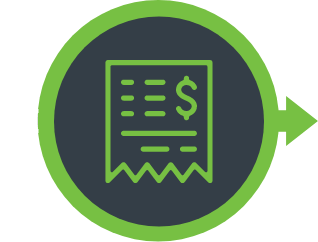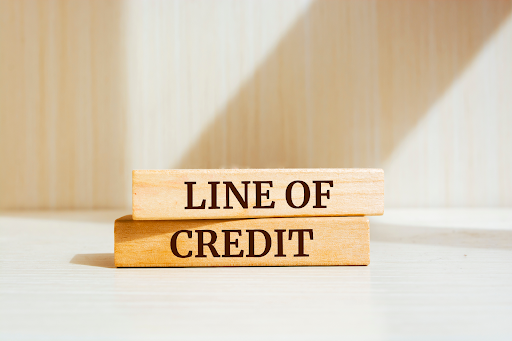Many businesses just don’t have the time to chase down unpaid invoices. To cut back on administrative work, business owners often find themselves caught between a rock and a hard place.
Should they try invoice factoring or a business loan?
It’s time to take action so you can get financial support and start growing your business again. If you’re torn on choosing between invoice factoring vs a business loan, we’ll break down the pros and cons.
What Is Invoice Factoring and How Does It Work?
Invoice factoring involves a business selling its unpaid invoices to a third-party factoring company. The factoring company purchases these invoices at a discount, then collects the rest of the invoice payment from the clients.
It’s important to note that invoice factoring is not a loan since you don’t need to pay the company back or provide any collateral.
What Are Business Loans and How Do They Work?
Some business owners turn to a business loan for financial support, borrowing a certain amount from a lender and paying it back over time. Over this period, you will accumulate interest and fees until you pay off the full balance.
Most lenders will also require collateral in the event of non-payment (with the rare exception of very good credit).
Invoice Factoring vs Business Loan: The Pros and Cons
Now that you’re clear on how each financing option works, it’s time to figure out which suits your business model best. The goal here is to give you the financial support you need to keep up with employee payroll or business expenses.
Funding Speed
Speed is the name of the game when you have thousands of dollars in unpaid invoices. For this category, invoice factoring wins over business loans by providing faster payments.
Riviera Finance is a dependable resource for businesses struggling with unpaid invoices. After a simple application and verification process, we provide business owners with 24-hour funding. Our speed and efficiency are just a few of the reasons why businesses contact us for help with payroll, cash flow, and credit management.
To compare, approval for a business loan can take anywhere from a week to a few months. Lenders have to take into account several details to determine if they can fund you, slowing down the process and potentially putting you at risk for even more lost income.
Qualification Requirements
Invoice factoring vs business loan qualification requirements are on nearly opposite ends of the spectrum. Invoice factoring requirements are simple, usually needing a verifiable accounts receivable department and solid creditworthiness from your customers.
Smaller businesses and start-ups often prefer the relaxed qualifications of invoice factoring since they’re still building their credit history.
Comparatively, a business loan requires you to meet several qualifications before approval. Lenders look at factors such as the loan type, credit history, financial statements, licensing documents, and income tax returns. You’ll likely be turned down if you’re short on any of these.
Overall Cost
Invoice factoring companies purchase your unpaid invoices at a discount and then require a small fee for processing. Some businesses may find this trade-off incompatible if they need to maintain strict profit margins.
To contrast, a business loan lets you borrow exactly the amount of money you need. However, if you don’t pay back the loan within a set period, you can rack up additional interest and fees.
Risk
Since invoice factoring isn’t a type of debt and requires no collateral, it’s a fundamentally low-risk option. The main challenge is potentially reducing your profit margin with invoice factoring’s discounted payment structure.
On the other hand, a business loan could potentially make your costs go up. Mounting interest and fees could make you pay far more than you originally intended. If you’re unable to pay, a lender may also seize your assets as collateral.
When it comes to invoice factoring vs business loan risks, the latter is more likely to cost more in the long term.
Which Resource Should You Use?
Invoice factoring services are well-suited to small, medium-sized, and start-ups companies that need financial flexibility. Since there are fewer approval requirements and no debt, invoice factoring is an indispensable tool for consistent cash flow.
An established medium-sized or large business with good credit may be more interested in a business loan. Firstly, this financing option has a higher ceiling for borrowing (which invoice factoring may not satisfy). Secondly, you can shorten the approval waiting period if you’re familiar with the business loan process and meet several requirements.
However, the time-saving benefits of corporate factoring could still help you run your business more smoothly. If you need advice on whether you should choose invoice factoring vs a business loan, we’re here to help. Riviera Finance is an invoice factoring company that provides struggling businesses with convenient and simplified financing solutions.
Riviera Finance Has a Streamlined Solution for Your Unpaid Invoices
For 50 years, Riviera Finance has helped businesses across several industries maintain steady cash flow with invoice factoring solutions. We even provide full-service payroll funding that slots seamlessly into your business operations, helping with everything from credit management to building capital.
Getting paid shouldn’t be a complicated or time-consuming process. Get started today to learn how invoice factoring can help your business grow.
Our Process

STEP 1
Apply
Complete form & become a Riviera client

STEP 2
Service
You deliver your products or services

STEP 3
Send
Send your invoices to Riviera Finance





